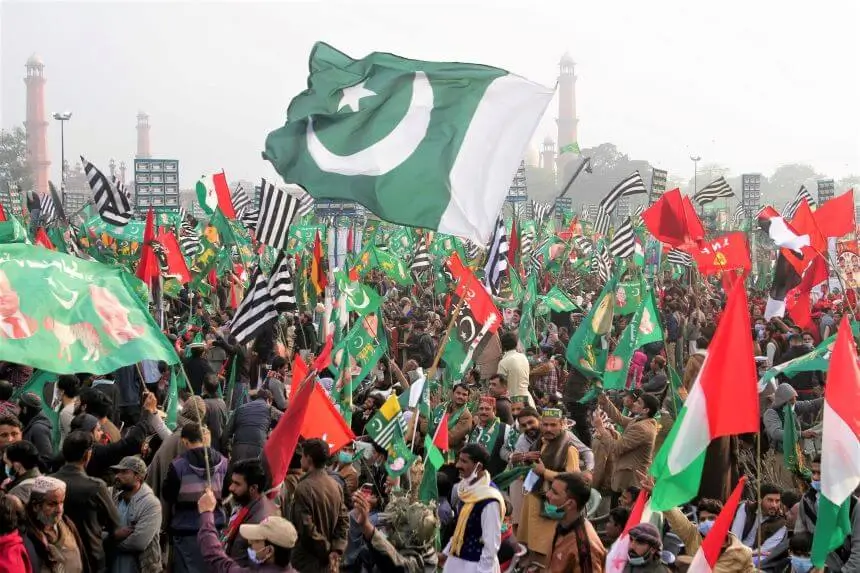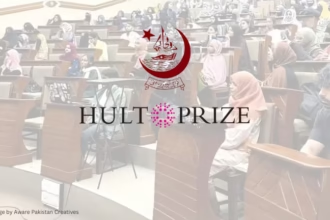Pakistan grapples with the challenge of having leaders marked by corruption, relying heavily on power for personal gain. Understanding the nuances of wielding power is crucial; it’s akin to being a dark horse, a hidden force. Inexperience and the inability to challenge authority hinder one from attaining true power. Reflecting on the political landscape in 1947, we gained independence, but post-Christ, our path was marred by an arrogant leader steering us in the wrong direction. The undeniable truth is that the desire for power has tainted Pakistan’s beauty, with some taking a neutral stance.
Unfortunately, we’ve fallen into a Western trap plagued by lethargy. Pakistan has fallen behind rivals due to a dearth of honest leadership over the past 76 years. Our inability to criticize those we’ve blindly followed since childhood exacerbates the problem. This inherited mindset creates disruptions. Constructive criticism is essential for a successful country, yet we remain silent defenders of our chosen leaders.
The figures tell a grim story. Pakistan faces a water crisis, unaddressed by anyone. A flawed political system leaves us with the worst economy, political turmoil, and an unhappy nation. The influence of TikTok and its culture is detrimental to the minds of our youth. Our role models are no longer figures like Ms. Curie, Einstein, or Ibn Khaldun but more tiktokers driven by views and greed.
Our inability to criticize those we’ve blindly followed since childhood exacerbates the problem.
Our focus has shifted from learning about historical figures like Ibn Khaldun, Ibn Rushd, Ibn Bajjah, and Abbas ibn Firnas, to merely understanding sects. Ignorance prevails about Pakistan’s history. In my opinion, the rust in Pakistan’s history began with the era of Iskandar Mirza merging the military and politics, paving the way for martial law. This norm led leaders to plunder resources, placing Pakistan third on the list of most rusty countries.
The need is for collective learning, mental growth, and transformation into a formidable force against political challenges. The assertion that “the Army will follow my commands” encapsulates the prevailing attitude among politicians. The escalating power dynamics between politicians and a burgeoning military create a window for the United States to intervene in Pakistani politics. This intervention reaches a climax with the Bud Bare Base incident, marking a tumultuous episode in U.S.-Pakistan relations. The 1960s witnessed a shift in U.S. interests, transitioning from its former ally, Pakistan, to India. This shift stems from the emergence of a third party, China, compelling the U.S. to maintain its status quo. However, a silver lining from previous U.S. military aid is the notable enhancement of Pakistan’s military capabilities, bolstering its strength and development.
Undoubtedly, the insatiable desire for power casts a shadow on Pakistan, with some opting for neutrality, falling prey to a Western influence trap. A pervasive lethargy lingers. Pakistan finds itself trailing behind India, a consequence of a dearth of sincere leadership over the past 76 years. The critical deficiency lies in our collective reluctance to question childhood influences, breeding a disruptive mindset. Aligning with a political party often translates to unwarranted defense rather than constructive critique. The invaluable tool of criticism, essential for a thriving nation, remains underutilized. The foundational pillars of Pakistan crumble under the weight of unaddressed water crises, a flawed political system, and a populace in distress. The pervasive influence of TikTok culture has a detrimental impact on youth. Icons like Carey, Einstein, and Ibn Khaldun take a back seat to TikTok influencers, as even political figures succumb to the allure of viral videos. This cultural shift leads to a disheartening ignorance of history, eclipsed by a fixation on sects and a broader lack of historical awareness. The echoes of the successful British “divide and rule” policy persist.
In my perspective, the era of Rushd in Pakistan traces its roots back to Iskandar Mirza, who intertwined the military with politics, giving rise to a martial law culture. Zardari’s tenure further exacerbated the issue of unabashed resource plundering, solidifying Pakistan’s position as the third-worst country in the world.
Pakistan stands at the forefront of countries engaging in adult content consumption, surpassing many other Muslim nations on this list.
Now, let’s address a concerning issue in Pakistan. Firstly, Pakistan stands at the forefront of countries engaging in adult content consumption, surpassing many other Muslim nations on this list. This fact is undeniably disconcerting. Secondly, our politicians employ novel strategies to secure power, notably through the Unity Agenda. This political tactic emphasizes unity in power dynamics and forging larger alliances, leading to the recurrence of old rulers. The concept of freedom of speech becomes increasingly hazy, as evidenced by the mysterious deaths and disappearances of journalists.
Comparing a well-educated Pakistani’s perspective to India becomes a stark realization. We are lagging behind India. The straightforward reason is India’s remarkable position as the 5th largest economy globally, while Pakistan ranks 24th. Despite a lengthy list of disparities, we seem to overlook the crucial lessons that could be gleaned from them.
The imperative lies in collective learning, a mental renaissance, and a shift in priorities to transform into a formidable force against political challenges. This necessitates transcending the fixation on TikTok fame, fostering a deeper understanding of historical figures, and dismantling the divisive remnants of the British legacy. The journey towards a brighter Pakistan begins with acknowledging the pitfalls and embracing a collective commitment to growth and enlightenment.
Pakistan stands at a pivotal juncture, necessitating a profound shift in mindset. As responsible Pakistanis, we cannot trivialize the significant challenges before us. Tackling these issues head-on is paramount for our nation’s advancement. The spectres of climate change, water scarcity, political instability, and the pervasive influence of TikTok loom large and demand our immediate attention. Recognizing and rectifying the inadequacies within our education system, along with the relentless fight against illiteracy, must be integral to our national agenda. A conscientious understanding and a decisive stance on these multifaceted challenges are imperative. Our young generation, being the bedrock of any thriving nation, requires collective efforts to shape a brighter future. Embracing these responsibilities will not only fortify Pakistan against adversities but also lay the groundwork for a resilient and prosperous society that stands the test of time.
